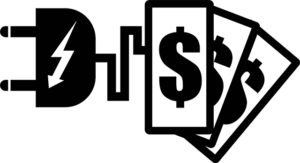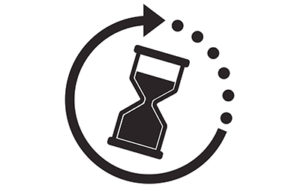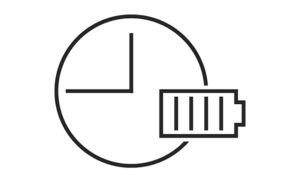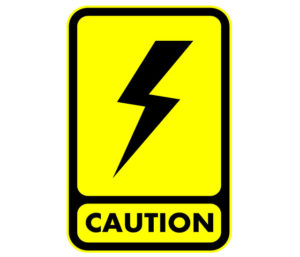
Temporary Power Equipment: Should I Build or Buy?
• You’re on a job site and have to get electrical power to a new location fast. You don’t have the right cables, connectors, and other temporary power equipment to do the job immediately.
• You’re planning for a new work site. It has unique temporary power requirements you’ve never faced before.
• You’re laying out a plan for a one-time only equipment setup, and you have to get temporary power to it. Is it worth purchasing new equipment for a single project?
When faced with situations like these, you might ask yourself:
“Build or buy? Should I take the time to find and purchase the right temporary power equipment or just rig up a cable assembly, CAM lock, connector, or other equipment to satisfy my immediate need?”
In this article, we’ll look at a few of the factors you should consider when deciding to build or buy.
Cost

As a general rule, if you can find standardized, off-the-shelf connectors, cables, and electrical equipment that meet your needs, it’s probably the lowest cost way to get the job done.
With the vast array of electrical system components available today, it can be hard to locate just the right item. But doing an online search and visiting the websites of reputable, well-organized suppliers makes it simpler to uncover off-the-shelf components that could do exactly what you need them to do. Most good suppliers have optimized how they manage their warehouses and are able to present a complete inventory clearly online.
If you can’t find something that meets your specifications online, contact an experienced electronics provider. They’ll listen to what you want to accomplish and recommend off-the-shelf items — some of which might not be available online — that will work for you. The solution might be a number of components that, when combined together, will solve your problem.
If a supplier cannot find the right off-the-shelf solution for you, they will likely suggest fabricating one. Most good suppliers have access to consultants, designers, and manufacturing facilities that plan and build custom components.
Ordering a custom item could seem expensive, and you might think it’s cheaper to build your own by piecing together inexpensive parts and cables. Before you do this, consider the real costs of building custom components in-house. Labor is a big one. Remember to factor in the price of mistakes and errors made by people who aren’t used to building custom pieces. You’ll likely encounter waste and extra time costs to rework the items.
The bottom line: If you take everything into account, you’ll find that if you build your own electrical components, it will cost the same as if you buy customized cables, connectors, and other equipment from a supplier.
Time

Tight timeframes could be a big influencer on your decision about whether to build or buy equipment. You’ll be more tempted to rig something up on your own if you’re under the gun to get temporary power out to a location in days rather than weeks.
Always remember, an experienced supplier might be able to find an off-the-self product or system that will satisfy your needs, which could be shipped overnight. And it’s likely that overnight shipping costs will be much lower than the labor it will take to build your own solution.
If you have a few days or weeks before you need to set up your temporary power supply, it’s likely that a firm experienced in building customized assemblies, cables, and equipment could do the job for you at a reasonable cost in a tight timeframe. Another plus with this solution: You won’t be diverting important human resources from doing their everyday work to fabricate equipment.
The bottom line: You might face extreme rush situations when it could make sense to build, but in most cases, taking advantage of fast fabrication processes and overnight shipping will buy you what you need as quickly as doing it yourself.
Longevity

Think about how long you plan to use the cable systems, CAM boxes, and other items you’re thinking of fabricating in-house. It could be a few weeks, months, or longer.
Shop-built solutions are generally not durable enough to withstand hard use on a job site the way factory-produced pieces can. This could open your work site to safety and other issues if electrical components become frayed, cracked, or damaged. Customized solutions that are manufactured professionally are more likely to stand up to everyday workplace wear and tear.
The bottom line: When it comes to durability, cables, connectors, and equipment, what you buy will always last longer than what you’ve built.
Safety

Off-the-shelf cables, connectors, CAM boxes, and other equipment purchased from a reputable supplier are professionally inspected and rated by a recognized agency like UL, so you know the load they can handle, where they can be used (outdoors or not, damp locations, etc.) and how to integrate them into existing systems correctly.
When it comes to custom components built by a reputable manufacturer or supplier, you know they’ve been checked and inspected by experts throughout the manufacturing process. They will also come with clear documentation on how to use them safely and correctly.
When it comes to electrical equipment built in your own shop, you’re depending on the experience of your own electricians to get the job done right. Plus, most firms don’t have enough staff in place to provide adequate production oversight and inspection of materials made in-house.
The bottom line: When it comes to safety, professionally manufactured equipment you buy is always safer than items you build in a shop.
Compatibility

One of the leading causes of power outages, accidents, injuries, and deaths on worksites is using incompatible equipment and components in a temporary power system.
If you’re considering making something up on the fly, think about whether you’re sure it will be compatible with all the other elements in your temporary power setup.
Is it really worth it to rush build something, or would it make more sense to work with an experienced professional to access the right solutions that will work safely and effectively with your current temporary power system components?
The bottom line: Are you sure the electrical system components you build in your own shop will be fully compatible with your current systems? Or does it make more sense to consult with an expert and buy them?
Inspections

Flat out, it’s easier to pass site inspections if you use standard, factory-made cables, connectors, and equipment or professionally manufactured ones that have been certified by an inspector.
Rigged systems and equipment raise red flags with inspectors, which will force them to take a second look at your operation. Is it really worth the chance of getting fined, written up, or shut down because you’re using built equipment?
The bottom line: Is it worth taking a chance on failing inspections because you’re using questionable equipment built on-site rather than safe equipment you buy?
Reputation

Let’s face it: Rigged electrical systems are more likely to fail and cause accidents, injuries, and deaths. Consider the impact to your firm’s reputation if word got out that a preventable incident occurred because of electrical components built on-site or in your own shop.
- Would you be able to keep the clients you currently have?
- How would you attract new clients if you have a damaged reputation?
- Would you be able to attract quality workers if they don’t feel safe working for your firm?
The bottom line: You’ve worked hard to build and maintain your firm’s reputation. Is it worth taking a chance using built equipment that might fail, cause accidents, or lead to injuries or deaths that could destroy it? As far as reputation goes, buy seems the way to go.
Hidden costs
If a built component causes an accident, injury, or death on a job site, it will lead to additional costs you probably haven’t thought about. This includes things like significantly higher insurance rates, more downtime because you’ll be subject to more frequent inspections, and higher employee attrition and recruitment costs.
The bottom line: Think big picture when considering whether to build or buy electrical equipment. Saving a little time or money to build could cost you a lot in the long run because you did not buy.
The bottom bottom line
In the end, in most cases, it clearly makes more sense to buy cables, connector units, CAM locks, and other components of a temporary power system than to build them on your own.
If you still have doubts or questions, contact an experienced supplier that can guide you to timely, cost-effective solutions that are right for your unique portable power needs. These could include:
- Large frame distribution boards
- Zig-zag transformer assemblies
- Transportable electric substations
- And more
Want to learn more? Check out these case studies of firms that have had custom electric solutions built for them.

 CALL OR TEXT NOW 800-597-9311
CALL OR TEXT NOW 800-597-9311
Leave a comment